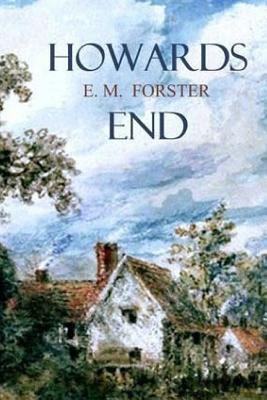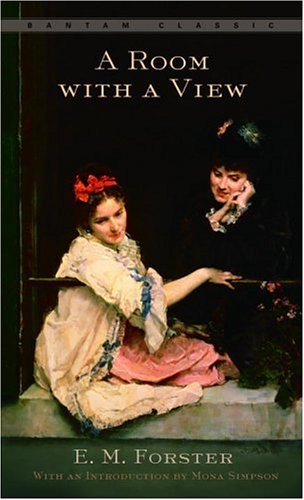English novelist E. M. Forster OM, CH sadly passed away on 7th June 1970. He was Born 1st January 1879 at 6 Melcombe Place, Dorset Square, London NW1. In 1883, Forster and his mother moved to Rooksnest, near Stevenage, Hertfordshire. He attended Tonbridge School in Kent, as a day boy. The theatre at the school has been named in his honour. He also attendeD King’s College, Cambridge, between 1897 and 1901, where he became a member of a discussion society known as the Apostles (formally named the Cambridge Conversazione Society) to discuss philosophical and moral questions Many of its members went on to constitute what came to be known as the Bloomsbury Group, of which Forster was a peripheral member in the 1910s and 1920s. There is a famous recreation of Forster’s Cambridge at the beginning of The Longest Journey. The Schlegel sisters of Howards End are based to some degree on Vanessa and Virginia Stephen.
After leaving university, he travelled in continental Europe with his mother. They moved to Weybridge, Surrey where he wrote all six of his novels. In 1914, he visited Egypt, Germany and India with the classicist Goldsworthy Lowes Dickinson. During the First World War, he was a conscientious objector, and volunteered for the International Red Cross, and served in Alexandria, Egypt. Forster spent a second spell in India in the early 1920s as the private secretary to Tukojirao III, the Maharajah of Dewas. The Hill of Devi is his non-fictional account of this period. After returning to London from India, he completed the last novel of his to be published during his lifetime, A Passage to India (1924), for which he won the James Tait Black Memorial Prize for fiction. He also edited Eliza Fay’s (1756–1816) letters from India, in an edition first published in 1925. Forster’ short stories, essays and librettis were ironic and well-plotted and examined class difference and hypocrisy in early 20th-century British society. Forster had a humanistic impulse toward understanding and sympathy. His 1908 novel, A Room with a View, is his most optimistic work, while A Passage to India (1924) brought him his greatest success.
The novel Howard’s End tells a story of social and familial relations in turn-of-the-century England and is generally considered to be Forster’s masterpiece. In 1998, the Modern Library ranked Howards End 38th on its list of the 100 best English-language novels of the 20th century. The book is about three families in England at the beginning of the 20th century: the Wilcoxes, rich capitalists with a fortune made in the Colonies; the half-German Schlegel siblings (Margaret, Tibby, and Helen), who have much in common with the real-life Bloomsbury Group; and the Basts, a struggling couple in the lower-middle class. The Schlegel sisters try to help the poor Basts and try to make the Wilcoxes less prejudiced. The Schlegels frequently encounter the Wilcoxes. The youngest, Helen, is attracted to the younger Wilcox brother, Paul. The eldest, Margaret, becomes friends with Paul’s mother, Ruth Wilcox. Ruth’s most prized personal possession is her family house at Howards End. She wishes that Margaret could live there, as her own husband and children do not value the house and its rich history, So Ruth, who is terminally ill, bequeaths the cottage to Margaret causing great consternation among the Wilcoxes. So Mrs Wilcox’s widowed husband, Henry, and his children decide not to tell Margaret about her inheritance.
Not knowing about the inheritance, free-spirited Margaret becomes friends with Henry Wilcox and eventually marries him. However Henry’s elder son Charles and his wife try to keep Margaret from taking possession of Howards End.On Henry’s advice, Helen tells Leonard Bast to quit his respectable job as a clerk at an insurance company, because the company stands outside a protective group of companies and thus is vulnerable to failure. Bast then loses his tenuous hold on financial solvency. and Helen tries to help young Leonard Bast (perhaps in part out of guilt about having intervened in his life to begin with). Sadly it all goes terribly wrong when it is revealed that Bast’s wife had an affair with Henry in Cyprus ten years previously but he had then carelessly abandoned her.Margaret confronts Henry about his ill-treatment, and he is ashamed of the affair but unrepentant about his harsh treatment of her. In a moment of pity for the poor, doomed Leonard Bast, Helen has an affair with him. Finding herself pregnant, she leaves England to travel through Germany to conceal her condition, but eventually returns to England when she receives news of her Aunt Juley’s illness but refuses to meet with Margaret but is tricked into a meeting at Howards End Henry and Margaret plan an intervention with a doctor, thinking Helen’s evasive behavior is a sign of mental illness. When they come upon Helen at Howards End, they also discover the pregnancy.Margaret tries in vain to convince Henry to forgive Helen. Unaware of Helen’s presence Mr. Bast arrives at Howards End wishing to speak with Margaret, whereupon Henry’s son, Charles, attacks him, and accidentally kills him, Charles is charged with manslaughter and sent to jail for three years. The ensuing scandal and shock cause Henry to reevaluate his life…
Forster’s most successful novel A Passage to India, on the other hand is set against the backdrop of the British Raj and the Indian independence movement in the 1920s. The story revolves around Dr. Aziz, his British friend Mr. Cyril Fielding, Mrs. Moore, A young British schoolmistress, Adela Quested, and her elderly friend, Mrs. Moore,who visit the fictional city of Chandrapore, British India. Adela is to marry Mrs. Moore’s son, Ronny Heaslop, the city magistrate. Meanwhile, Dr. Aziz, a young Indian Muslim physician sees a strange Englishwoman at his favourite mosque, who turns out to be Mrs Moore, and the two chat and part as friends. Mrs Moore relates her experience at the mosque to Ronny Heaslop, her son. Adela, is intrigued, and attends a party held by Mr. Turton, the city tax collector, where she meets Cyril Fielding, headmaster of Chandrapore’s government-run college for Indians. Later on Fielding invites Adela and Mrs. Moore to a tea party with him and a Hindu-Brahmin professor named Narayan Godbole. On Adela’s request, he also extends his invitation to Dr. Aziz. At Fielding’s tea party, Fielding and Aziz become great friends and Aziz promises to take Mrs. Moore and Adela to see the Marabar Caves, a distant cave complex.



Aziz and the women begin to explore the caves. Unfortunately Mrs. Moore is overcome with claustrophobia. Later Aziz sees Adela speaking to another young Englishwoman, Miss Derek, who has arrived with Fielding. Fielding, Mrs. Moore, and Aziz return to Chandrapore on the train. When the train arrives At the train station, Dr. Aziz is arrested and charged with sexually assaulting Adela in a cave. She reports the alleged incident to the British authorities.The run-up to Aziz’s trial for attempted sexual assault releases the racial tensions between the British and the Indians. The only actual evidence the British have is the field glasses in the possession of Dr. Aziz. Despite this, the British colonists firmly believe that Aziz is guilty however Fielding proclaims his belief in Aziz’s innocence and the Indians, who consider the assault allegation a fraud aimed at ruining their community’s reputation, welcome him. Mrs. Moore is unexpectedly apathetic and irritable. Her experience in the cave seems to have ruined her faith in humanity. Although she curtly professes her belief in Aziz’s innocence, she does nothing to help him. Ronny, alarmed by his mother’s assertion that Aziz is innocent, decides to arrange for her return by ship to England before she can testify to this effect at the trial. Mrs. Moore dies during the voyage. Her absence from India becomes a major issue at the trial, where Aziz’s legal defenders assert that her testimony alone, had it been available, would have proven the accused’s innocence. This causes Adela herself to question Aziz’s guilt.
A Room with a View is about a young woman in the repressed culture of Edwardian era England. Set in Italy and England, the story is both a romance and a critique of English society at the beginning of the 20th century. Merchant-Ivory also produced an award-winning film adaptation in 1985 starring Helena Bonham-Carter, Denholm Elliot and Dame Maggie Smith. In 1998, the Modern Library ranked A Room with a View 79th on its list of the 100 best English-language novels of the 20th century. A passage to India was selected as one of the 100 great works of English literature by the Modern Library and won the 1924 James Tait Black Memorial Prize for fiction. Time magazine included the novel in its “100 Best English-language Novels from 1923 to 2005″. The novel is based on Forster’s experiences in India. E.M.Forster borrowed the book’s title from Walt Whitman’s poem Leaves of Grass.